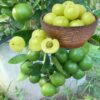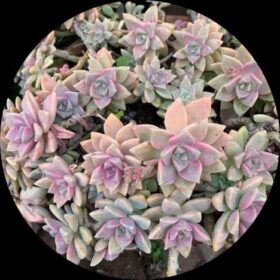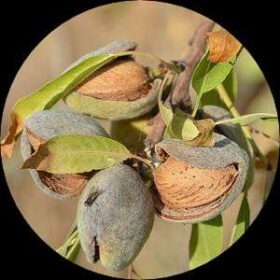- Empty cart.
- Continue Shopping
Amla (Nelli)
₹175.00Current price is: ₹175.00. Original price was: ₹320.00.
Genus : Phyllanthus
“Introducing the Amla (Indian Gooseberry) Plant, a treasure trove of health benefits right in your own garden. This fruit tree is renowned for its high vitamin C content and powerful antioxidant properties. Harvest the small, round, and tangy Amla fruits, perfect for making preserves, juices, and adding to various dishes. Experience the natural goodness of Amla and enhance your garden with this valuable plant.”
Add to cart
The Amla tree grows up to 18 meters tall, and has a crooked trunk and spreading branches that are covered in small, delicate leaves. The leaves are pale green in color and have a feathery texture, and the tree produces small, fragrant flowers in the spring. The fruit of the Amla tree is small, round, and slightly larger than a grape, and has a hard, fibrous outer layer surrounding a soft, pulpy interior.
The Amla fruit is rich in vitamin C, and is also a good source of other nutrients such as iron, calcium, and antioxidants. It has been used in Ayurvedic medicine to treat a wide range of ailments, including respiratory disorders, digestive problems, and skin diseases. The fruit is also believed to have anti-inflammatory and anti-cancer properties.
The Amla plant is relatively easy to cultivate, and can be grown in a range of soils and climates. It is often propagated from seed or cuttings, and can take up to 7 years to produce fruit. The tree is hardy and drought-tolerant, and requires little maintenance once established.
In addition to its medicinal and culinary uses, the Amla plant is also valued for its wood, which is used for furniture, tools, and musical instruments. The leaves and bark of the tree have also been used in traditional medicine for their various health benefits. Overall, the Amla plant is a valuable and versatile plant that has played an important role in Indian culture and medicine for centuries
The Amla plant, also known as Indian gooseberry or Emblica Officinalis, is a small deciduous tree that is native to India and other parts of Southeast Asia. The tree produces small, round, greenish-yellow fruit with a bitter and sour taste. The fruit has been used in traditional Indian Ayurvedic medicine for centuries, and is also commonly used in Indian cuisine for its flavor and health benefits.
1 review for Amla (Nelli)
| 5 star | 100% | |
| 4 star | 0% | |
| 3 star | 0% | |
| 2 star | 0% | |
| 1 star | 0% |
1-1 of 1 review
Add a review
Currently, we are not accepting new reviews













THE NELLI PLANT WAS A STRONG AND HEALTHY-AND-NOT AFFECTED BY TRANSPORT AND ROUGH HANDLING BY COURIER PEOPLE..
BUT THE PACKING WAS NOT SO GOOD. IT WAS BEND AND FOLDED ON THE MIDDLE. THE PACKET LABEL CARRIED A HAND WRITTEN ,NOT SO LEGIBLE, INTIMATION THAT IT IS A LIVE PLANT. THE PLANT WAS NOT DAMAGED AS IT WAS A SHORT PLANT.
USUALLY THE PLANTS ARE PLANTED IN A CARRY BAG WHICH IS BLACK IN COLOUR ,SO THAT IT IS EASILY IDENTIFIED WHILE UN-PACKING -THAT WAS NOT THE CASE. HERE.